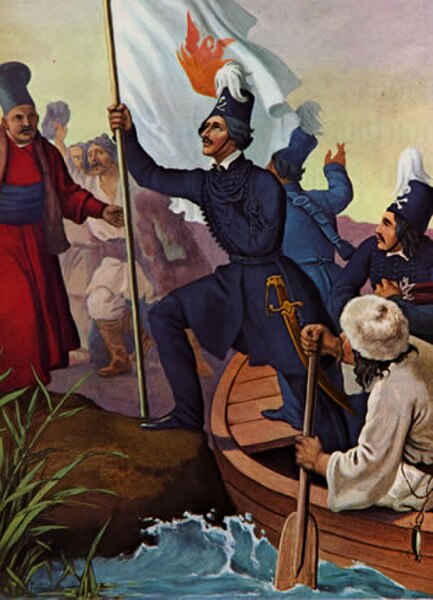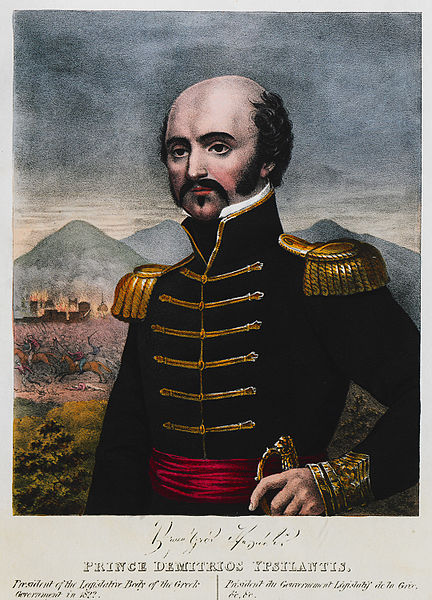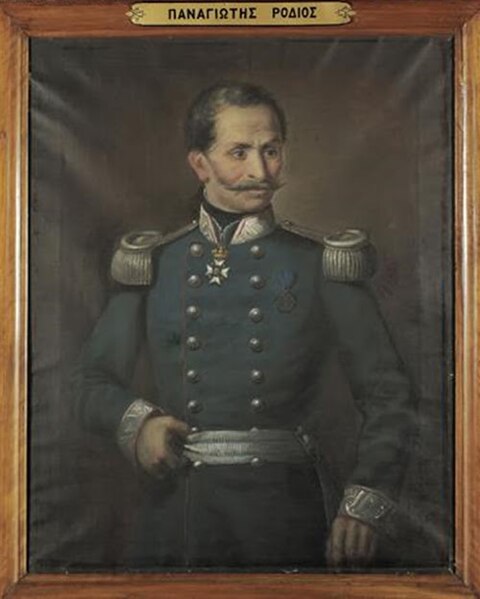Alexandros Papagos was a Greek army officer who led the Hellenic Army in World War II and the later stages of the subsequent Greek Civil War. The only Greek career officer to rise to the rank of Field Marshal, Papagos became the first Chief of the Hellenic National Defence General Staff from 1950 until his resignation the following year. He then entered politics, founding the nationalist Greek Rally party and becoming the country's Prime Minister after his victory in the 1952 elections. His premiership was shaped by the Cold War and the aftermath of the Greek Civil War, and was defined by several key events, including Greece becoming a member of NATO; U.S. military bases being allowed on Greek territory and the formation of a powerful and vehemently anti-communist security apparatus. Papagos' tenure also saw the start of the Greek economic miracle, and rising tensions with Britain and Turkey during the Cyprus Emergency over the Cyprus issue.
Papagos as Prime Minister.
Papagos (left) with General Archibald Wavell, General Officer Commanding-in-Chief of the Middle East Command of the British Army, in Athens in January 1941.
Papagos (center) with other officers as POW in Dachau.
Prime minister Papagos at the courtyard of Les Invalides, after being decorated with the Médaille militaire during his visit in France (1954).
The Hellenic Army, formed in 1828, is the land force of Greece. The term Hellenic is the endogenous synonym for Greek. The Hellenic Army is the largest of the three branches of the Hellenic Armed Forces, also constituted by the Hellenic Air Force (HAF) and the Hellenic Navy (HN). The army is commanded by the chief of the Hellenic Army General Staff (HAGS), which in turn is under the command of Hellenic National Defence General Staff (HNDGS).
Alexander Ypsilantis (in Sacred Band uniform) crosses the Pruth, starting the Greek War of Independence. Painting by Peter von Hess
Demetrios Ypsilantis was commander of the tactical Greek forces during the Battle of Petra (1829), final battle of the War of Independence
Theodoros Kolokotronis, the most important commander of the Greek irregular forces during the Revolution
Panagiotis Rodios, as Army's colonel, one of the early supporters for the creation of regular army during the Revolution








